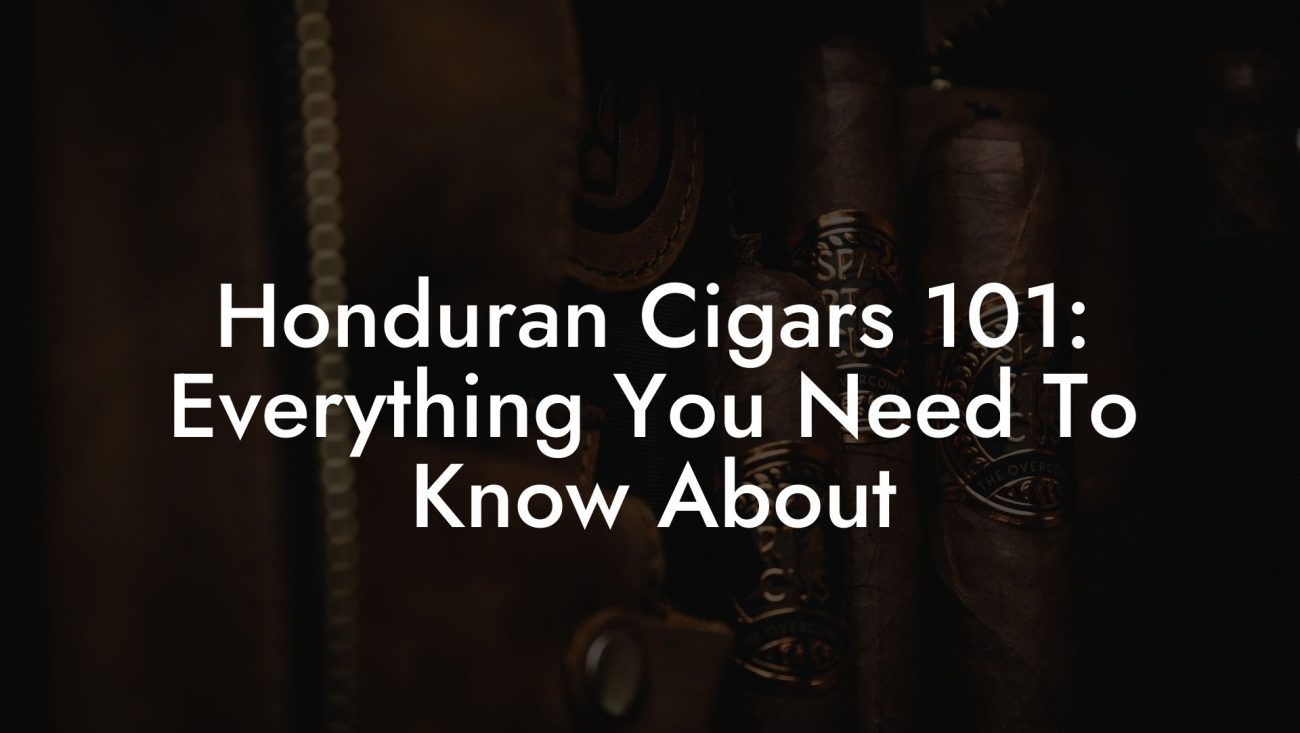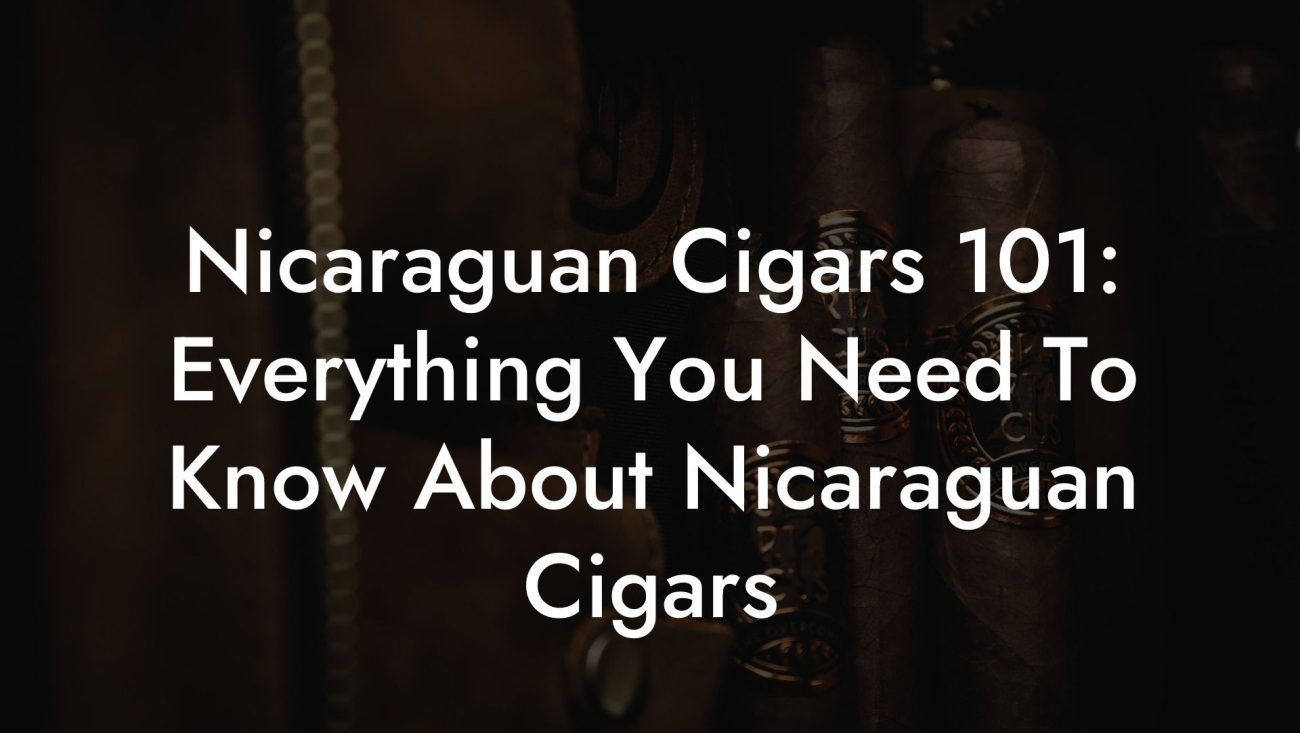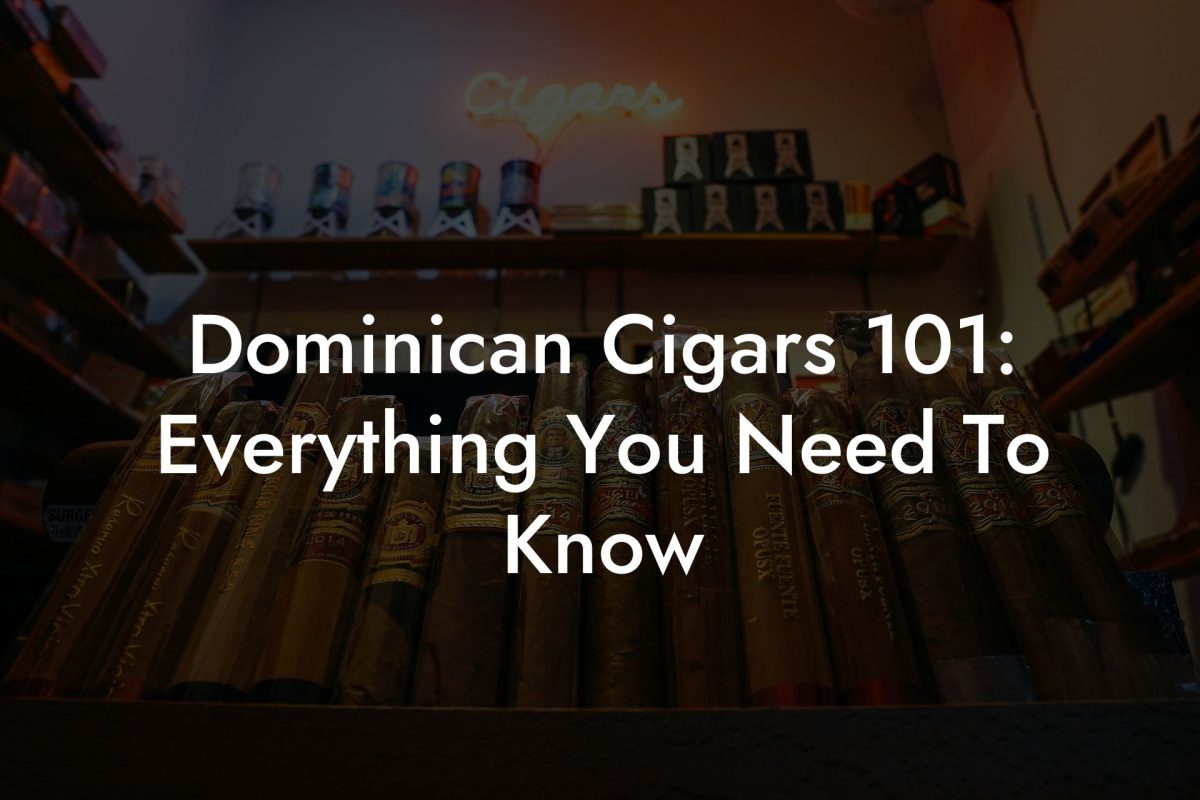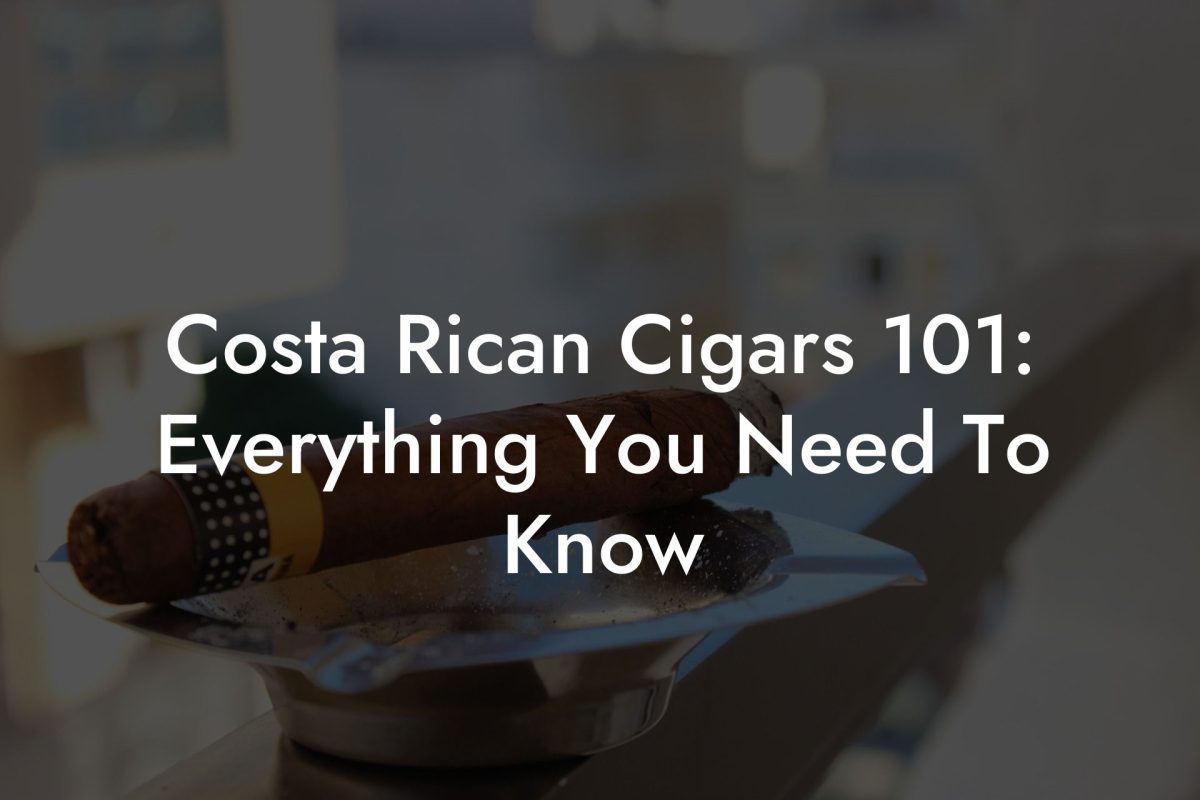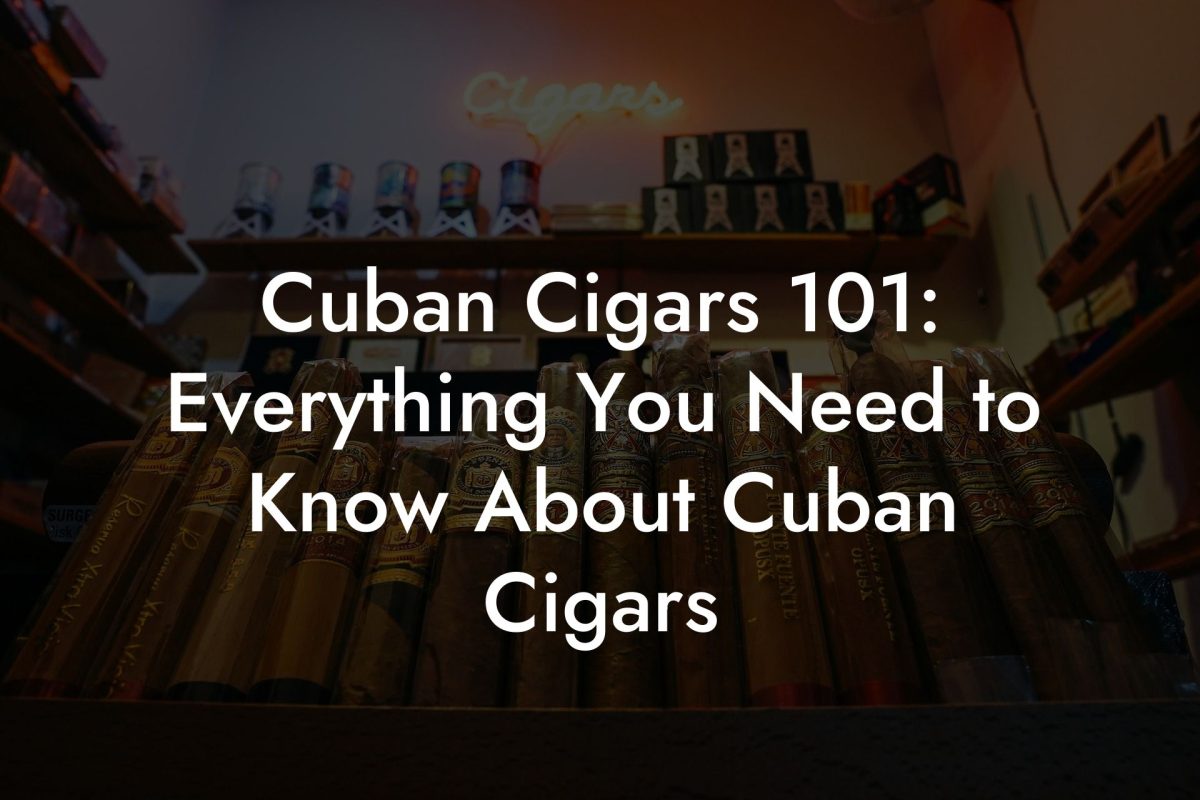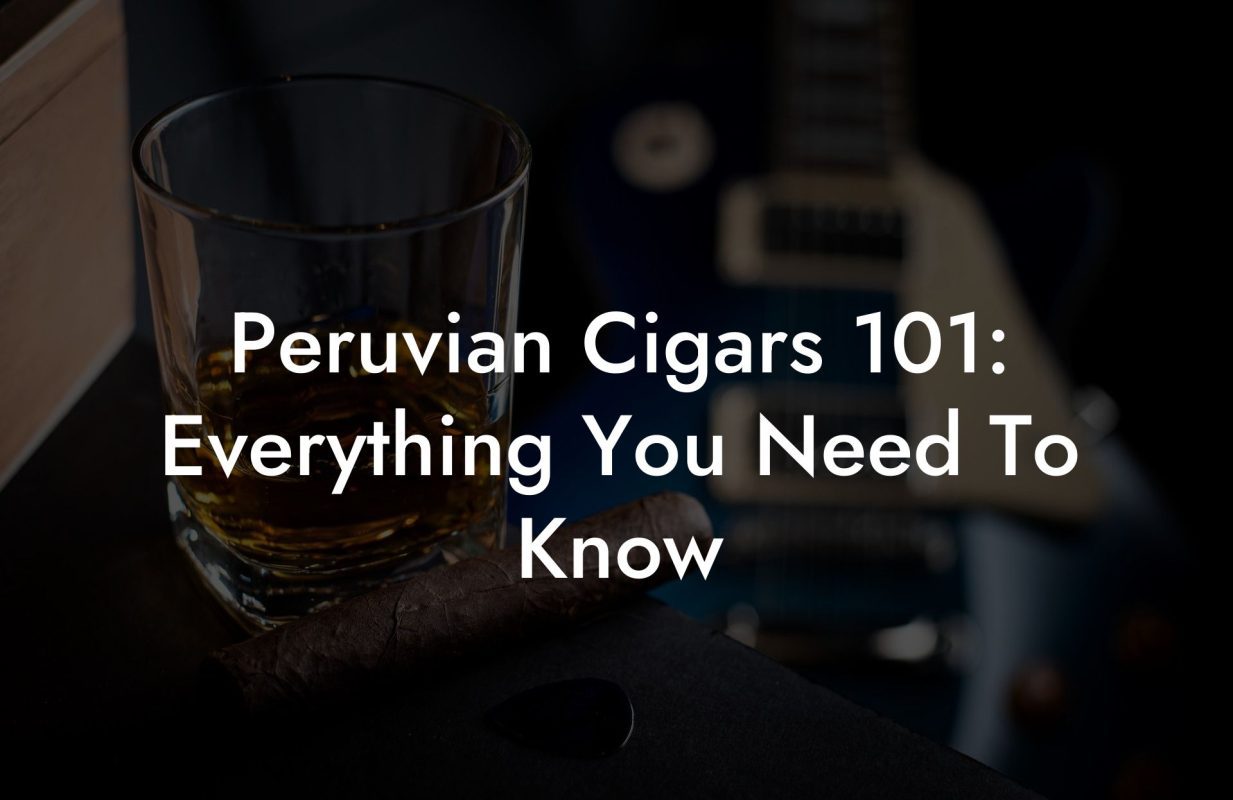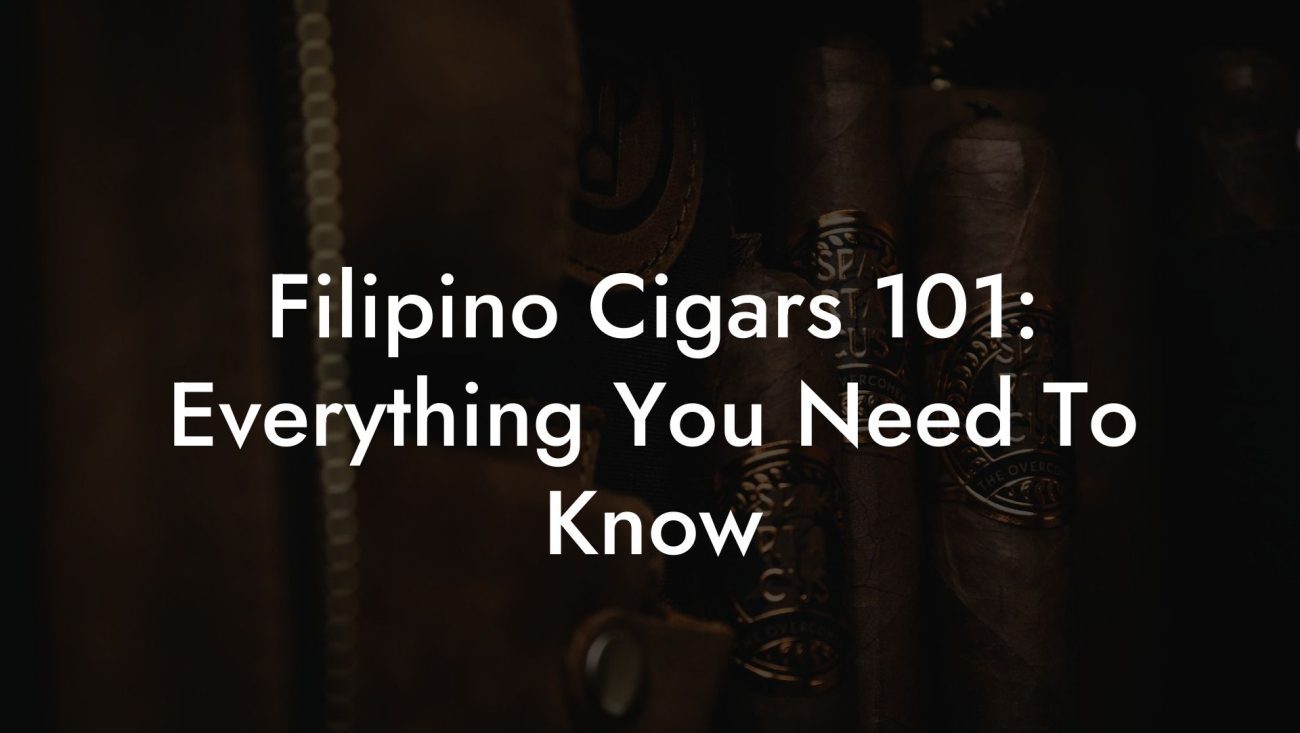Ever found yourself attracted to the smooth allure of a cigar, only to wonder if its stylish sophistication comes with a backstage of health risks? You’re not alone. From the glittering lounges of upscale parties to the urban hangouts where trends are born, cigars have tagged along as much more than just a status symbol. But let’s get real, how bad are cigars for you? Whether you’re a curious Gen-Z explorer or a savvy millennial keen on knowing the risks behind that rich aroma, we’re diving deep into the world of cigars and their impact on your body, mind, and social vibes.
How Bad Are Cigars For You Table of Contents
Setting the Scene: The Allure and Culture of Cigars
Cultural Footprints: A Brief History of Cigar Smoking
The Breakdown: Health Effects of Cigar Smoking
Cigars vs. Cigarettes: The Great Debate
Cigar Smoking Trends Among Gen-Z and Millennials
Breaking Down the Risks: How Bad Are Cigars for You?
Holistic Lifestyle Approaches: Mitigating the Impact
Scientific Insights: What the Latest Research Reveals
Resources and Community Support: Your Next Steps
Social Perceptions and the Future of Cigar Culture
Making Informed Decisions: Balancing Pleasure and Health
Setting the Scene: The Allure and Culture of Cigars
Picture this: a warm, dusky evening, a sleek hum of conversation, and the irresistible aroma of a fine cigar swirling in the air. Cigars have long been a cultural icon, often projecting an image of sophistication, leisure, and even rebellion. They capture a sense of tradition and indulgence that just can’t be replicated by their cigarette cousins.
But let’s peel back the layers. Beyond the glitz and glam, cigars also have historical roots that weave through different cultures and eras. From the indigenous rituals of the Americas to the smoke-filled banquets of the European aristocracy, cigars have been both celebrated and scrutinized. Today, they continue to spark conversation among those who appreciate the art of slow-burning tobacco, yet they also raise a big “but” on the health chart.
In this guide, we aren’t here to shame your taste for cigars but to provide you with the lowdown on their health implications, backed by research and plain talk. Let’s break it down before you light up your next stogie.
Cultural Footprints: A Brief History of Cigar Smoking
Cigars trace their origins back to ancient times when native tribes in the Caribbean and South America discovered the ritualistic and medicinal properties of tobacco. By the time European explorers arrived, the allure of tobacco had already captured imaginations worldwide.
Cigars Through the Ages
From the flamboyant courts of 18th-century Europe to the gritty speakeasies of the Prohibition era, cigars have always been more than just a way to smoke. They represent a blend of art, craft, and the complex interplay between luxury and risk.
In modern times, cigars enjoy a dual identity: as a symbol of refined taste at high-end social events and as a trendy accessory among urban millennials and Gen-Z who see them as part of a curated lifestyle. However, the very allure that draws you in sometimes masks serious drawbacks.
The history of cigar smoking is a testament to both enduring traditions and evolving attitudes toward health and wellness. Even as we celebrate its cultural impact, it’s essential to understand the science behind the smoke.
The Breakdown: Health Effects of Cigar Smoking
No matter how sophisticated you feel puffing away on a premium cigar, the potential consequences for your health are not as refined. While many believe that cigar smoking is a "lesser evil" than cigarette smoking, the truth is more complicated.
Cigar smoking poses a multitude of risks, affecting various organs and overall health. Let’s take a closer look at how cigars interact with your body.
1. Cardiovascular Concerns
One of the most significant risks associated with cigars is their impact on your heart and blood vessels. Regular exposure to the chemicals in cigar smoke can elevate your chances of developing cardiovascular diseases. Some key points include:
- Increased Heart Rate: Nicotine is a known stimulant, and while cigars are often smoked less frequently than cigarettes, each puff still sends your heart rate skyrocketing.
- High Blood Pressure: The vasoactive compounds in tobacco smoke can lead to arterial constriction, making your heart work overtime.
- Risk of Stroke: Long-term exposure to the chemicals in cigar smoke can damage blood vessels, increasing the likelihood of strokes.
These effects aren’t just theoretical, they have been documented in numerous clinical studies linking tobacco use with cardiovascular complications.
2. Respiratory Repercussions
If you think that the thick, aromatic smoke of a cigar is merely an aesthetic allure, think again. The respiratory system bears the brunt of inhaling the toxic compounds produced by tobacco. Here’s what goes down:
- Lung Irritation: Even if you don’t actively inhale, the smoke can still irritate your nasal passages, throat, and lungs.
- COPD and Emphysema: Chronic Obstructive Pulmonary Disease (COPD) and emphysema are among the long-term risks, as the smoke damages the delicate lung tissue.
- Cancer Risks: The link between smoking and various forms of cancer, especially throat, mouth, and lung cancers, is well documented. Even infrequent cigar smoking can increase your risk over time.
The impact on respiratory health is particularly concerning given today’s heightened awareness of lung health in the wake of global pandemics.
3. Oral Health and Beyond
Another noteworthy aspect is the effect of cigars on your oral health. The exposure to tobacco smoke can create a breeding ground for dental problems:
- Gum Disease: The toxins in cigar smoke contribute to gum inflammation and periodontitis.
- Dental Caries: Reduced saliva flow and the presence of harmful chemicals can lead to cavities and tooth decay.
- Mouth Cancer: The increased contact time of smoke with the lining of your mouth heightens the risk for oral cancers.
Even if you opt for a celebratory puff rather than a pack-a-day habit, these risks add up over time and warrant serious consideration.
Cigars vs. Cigarettes: The Great Debate
When it comes to tobacco, the debates are as heated as the burn on your cigar tip. Many argue that cigars are not as dangerous as cigarettes because you might not inhale as deeply, yet, this often oversimplifies the issue.
Understanding the Differences
Cigarettes are designed for quick, frequent burning, and yes, inhaling. Cigars, on the other hand, are typically enjoyed slowly, often on special occasions. But here’s the kicker: because cigars contain a higher concentration of tobacco, even infrequent use can expose you to a potent cocktail of toxins.
While cigarette smokers tend to inhale nicotine directly into their lungs, many cigar aficionados prefer to savor the flavor by holding the smoke in their mouth. This practice, however, increases exposure to toxins that can lead to oral cancers and gum disease, even if lung exposure is relatively lower.
So, is one safer than the other? Not really. Both carry significant risks, albeit in different ways. It ultimately comes down to usage patterns, frequency, and the specific health outcomes you’re concerned about.
Cigar Smoking Trends Among Gen-Z and Millennials
The demographics of cigar smoking have shifted considerably over the years. Today’s younger generations, Gen-Z and millennials, are redefining what it means to be a smoker. In a landscape where social media trends and personal style are everything, cigars have made a comeback as an emblem of laid-back luxury and counterculture cool.
However, with this resurgence comes an urgent need for transparency about the potential pitfalls. Let’s face it: while the aesthetic of a dimly lit lounge and a well-crafted stogie is undeniably appealing on your Instagram feed, the underlying health risks should be part of the conversation.
Here are a few key considerations for modern cigar enthusiasts:
- Social Media Influence: Don’t be surprised if you see influencers casually toasting with cigars, promoting an image of sophistication. But remember, every glamorous snap might be hiding a serious health caution.
- Occasional vs. Regular Use: Many young adults claim to smoke cigars “occasionally” during weekends or special events. While this might mitigate some risks, the cumulative impact of even sporadic exposure remains a concern.
- Alternative Trends: With the rise of vaping and other nicotine delivery systems, traditional cigars face stiff competition. Yet, the allure of a classic cigar endures, driven by its heritage and deep-rooted cultural symbolism.
Whether you’re a seasoned cigar lover or someone contemplating a try, it’s essential to balance the lifestyle image with a clear understanding of what those choices mean for your long-term health.
Breaking Down the Risks: How Bad Are Cigars for You?
Now, let’s address the million-dollar question: how bad are cigars for you, really? The answer isn’t a simple yes-or-no. Instead, it’s a complex interplay of lifestyle choices, frequency of smoking, genetic predispositions, and overall health management.
Key risk factors include exposure to carcinogens, inflammation throughout the body, and potential disruptions to cardiovascular and respiratory systems. Even if you’re not inhaling deeply, the toxins make contact with the sensitive tissues of your mouth and throat, a recipe for long-term complications.
Additionally, the intermittent yet potent exposure to high concentrations of nicotine can lead to dependency and contribute to the cumulative wear and tear on your body’s systems. In short, while cigars might appear to be an “occasional indulgence,” their impact can ripple out in unexpected ways.
The Science Behind the Smoke
Scientific studies have consistently shown that the damage inflicted by tobacco isn’t limited to the lungs. Complex biochemical reactions in your body, triggered by the chemicals in cigar smoke, lead to oxidative stress and inflammation. These processes are culprits in a range of diseases, from heart disease to cancer.
One particularly concerning aspect is the role of second-hand smoke. Even if you’re just in the vicinity of someone enjoying a cigar, you’re likely inhaling some of that toxic brew. Research indicates that the residual chemicals from cigar smoke can linger in the air, adversely affecting those around you.
So, while the occasional cigar might not incite immediate disaster, it is important to note that cumulative exposure over years can significantly boost your risk profile for serious health conditions.
Holistic Lifestyle Approaches: Mitigating the Impact
If you’re not ready to hang up your cigar cutter just yet, there are strategies you can explore to mitigate some of the impacts of cigar smoking. The key is to adopt a holistic approach that bolsters your overall well-being even as you enjoy your occasional indulgence.
Embracing Mindfulness and Stress-Reduction Techniques
Stress is a known aggravator of many chronic conditions, and paradoxically, many people light up a cigar during their moments of unwinding. Incorporating mindfulness practices like meditation, deep breathing exercises, or even yoga can help counterbalance some of the stress-related impacts on your heart and overall health.
Optimizing Nutrition and Hydration
A nutrient-rich diet can be your greatest ally against the harmful effects of tobacco. Foods high in antioxidants, such as berries, leafy greens, nuts, and seeds, can help neutralize some of the free radicals generated by exposure to tobacco toxins. Staying well-hydrated is also crucial, as it supports the natural detoxification processes in your body.
Physical Activity and Regular Check-Ups
Regular exercise has been shown to improve cardiovascular health, enhance lung capacity, and support overall bodily resilience. Coupled with routine medical check-ups, especially if you’re a regular smoker, this approach helps in early detection of any concerning changes.
While these strategies won’t cancel out the risks of smoking cigars entirely, they can definitely help to create a healthier lifestyle that reduces your overall risk of developing tobacco-related illnesses.
Scientific Insights: What the Latest Research Reveals
As research into the effects of tobacco continues to evolve, scientists are discovering more about how even occasional cigar use can lead to long-term health challenges. Here, we break down some of the most compelling findings:
Oxidative Stress and Inflammation
Studies have shown that the chemicals in cigar smoke trigger oxidative stress, an imbalance between free radicals and antioxidants in your body. This, in turn, leads to chronic inflammation, a known precursor to many serious conditions like heart disease and cancer. Even intermittent exposure can leave its mark at the cellular level.
Genetic Factors and Individual Risks
Not everyone is affected by tobacco smoke in the same way. Genetic predispositions can play a significant role in determining how your body responds to the toxins. For some, even infrequent exposures can trigger serious health issues, while others might notice a slower progression of risk. However, the unpredictable nature of these genetic interactions makes it vital for everyone to exercise caution.
The Impact of Second-Hand Smoke
Second-hand smoke is an insidious byproduct of cigar smoking. Research has increasingly pointed out that those around you, be it friends, family members, or colleagues, are involuntarily exposed to these toxins. The implications range from respiratory irritation to an elevated risk of heart disease. In confined spaces like lounges or private parties, the risk is even more pronounced.
The synthesis of these studies underscores a fundamental truth: while cigars might have a nostalgic and cultural appeal, their impacts at the cellular level and beyond cannot be overlooked. From oxidative stress to the unpredictable interplay of genetics, the science reinforces that even occasional cigar smoking can carry serious drawbacks.
Resources and Community Support: Your Next Steps
If you’re feeling a bit overwhelmed by the complexities of cigar health risks, remember, you’re not alone. The digital age is rife with communities and resources dedicated to both harm reduction and exploring healthier lifestyle choices.
First, consider connecting with online forums and social media groups where fellow cigar enthusiasts share tips on moderation, healthy lifestyle strategies, and personal experiences. These spaces are not just about smoking, they’re also about balancing the indulgence with self-care insights, exercise routines, nutritional hacks, and mindfulness practices.
Also, there are several credible websites and organizations that offer research-backed information on tobacco health impacts, cessation tools, and supportive communities. Sites like the American Lung Association, the Centers for Disease Control and Prevention (CDC), and specialized health forums often provide the latest insights and tips on reducing exposure and improving overall lifestyle.
Don’t hesitate to reach out to health professionals who specialize in tobacco-related health concerns. Whether you’re considering cutting back, exploring safer alternatives, or simply staying informed, a knowledgeable physician or counselor can offer personalized advice to support your journey.
Remember: knowledge is power, and understanding both the risks and proactive measures available can lead to a balanced approach that supports your long-term wellness.
Social Perceptions and the Future of Cigar Culture
The cigar landscape is evolving. What used to be the exclusive pastime of an older generation is now being rediscovered by a diverse crowd that values authenticity, craftsmanship, and the occasional indulgence. But as the market adapts, so too does the social conversation around cigar smoking.
For many young adults, cigars represent a nod to tradition mixed with an edgy, rebellious twist against a backdrop of modern wellness culture. There’s a certain irony in embracing something that’s historically seen as a luxury yet potentially dangerous, in the age of fitness influencers and holistic health advocates, it’s a paradox that sparks debate.
As awareness of health risks increases, future trends in the cigar industry may well pivot towards harm reduction. Innovations in tobacco processing, alternative natural products, or even smarter regulation could shift how cigars are manufactured and marketed. Gen-Z and millennials, who are already leading movements towards transparency and health-conscious choices, are poised to drive a new chapter in cigar culture, one that balances tradition with modern wellness.
Whether you choose to continue enjoying a quality cigar or decide to make a healthier lifestyle pivot, staying informed and connected with likeminded communities is key. The future of cigar culture will be shaped by conversations like these, where tradition meets the evolving standards of health and sustainability.
Making Informed Decisions: Balancing Pleasure and Health
At the end of the day, understanding how bad cigars are for you is about making informed choices. The pleasure derived from a well-crafted cigar can indeed be part of an elegant lifestyle, but it’s crucial to weigh that against the potential for long-term health impacts.
Consider the frequency of your smoking, the environment in which you smoke, and whether you’re taking steps to reduce collateral damage such as improving your diet, exercising regularly, and participating in mindfulness practices.
Moderation is key. For those who choose to indulge, pairing that ritual with other healthy habits can not only offset some risks but also promote a more balanced lifestyle. As with any indulgence, awareness is your best friend. The more you know about how tobacco affects your body, the better you can protect your health while still enjoying the moments that make life a bit more flavorful.
The decision to smoke cigars, like many lifestyle decisions, rests on a personal balance between pleasure and risk. Empower yourself with information, consider your personal health history, and always remain open to adapting as new research emerges.
FAQs: Your Top Questions About Cigars and Health
We know you’ve got questions about cigar smoking and its impact on your health. Here are some of the most frequently asked questions, answered in a straightforward way.
1. Are cigars really less harmful than cigarettes?
While many cigar smokers don’t inhale deeply, cigars still expose you to high levels of toxins, particularly in your mouth and throat. So, even occasional smoking carries risks.
2. Does occasional cigar smoking significantly affect my heart health?
Yes, even infrequent exposure to the chemicals in cigar smoke can contribute to cardiovascular stress over time by raising blood pressure and increasing heart rate.
3. Can enjoying a cigar increase my risk for cancer?
Absolutely. The carcinogens in cigar smoke are linked to various cancers including those of the mouth, throat, and lungs, especially with long-term or repeated exposure.
4. What about second-hand smoke from cigars?
Second-hand cigar smoke contains many of the same toxic chemicals as direct smoke; thus, it can pose significant health risks to people around you.
5. How can I reduce the adverse effects while still enjoying a cigar now and then?
Moderation, combined with a healthy lifestyle, think a nutrient-rich diet, regular exercise, and mindfulness practices, can help mitigate some risks. Also, opt for smoke settings that are well-ventilated.
6. Is there any safe level of cigar smoking?
The safest level from a health perspective is none at all. However, if you choose to smoke, understanding the risks and practicing moderation is key.
7. Are flavored cigars any less harmful?
Flavored cigars often still contain the same harmful tobacco and additives, so their health risks remain similar to those of regular cigars.
8. How do genetics play a role in the risks associated with cigar smoking?
Genetic factors can influence how your body reacts to tobacco toxins. For some people, even occasional smoking may trigger serious issues, while others might experience slower progression of risks.
9. Can I replace my regular cigar habit with less risky alternatives?
Many are exploring alternatives like nicotine pouches or vaping. However, these too come with their own health risks. Always research and consider professional medical advice when switching habits.
10. Where can I find more information on cigar health research?
Trusted resources include the American Lung Association, the CDC, and published research in peer-reviewed medical journals. Engaging with these resources can give you a clearer perspective on the health implications of tobacco use.
Your Path Forward: Empowerment Through Knowledge
Now that you’re armed with the full spectrum of what cigars can mean for your health, from the enchanting history and cultural allure to the stark scientific realities, it’s time to decide how this knowledge shapes your lifestyle.
Whether you opt to savor a cigar during those rare, celebratory moments, or you choose to pivot towards a more health-centric lifestyle, the choice is yours. Empower yourself with facts, support your body with holistic living practices, and join a community that values transparency and well-being.
Remember, the conversation about cigars isn’t just about indulgence vs. risk, it’s about informed decision-making in a world where every puff carries history, culture, and a trace of danger. Embrace your journey with the confidence that comes from knowledge, and let that guide you towards a healthier, more balanced life.
So next time you’re considering lighting up, weigh the tradition and taste against the long-term implications. Stay savvy, stay stylish, and above all, stay informed.


